Interviewing Techniques
Course Overview

It?s all about people after all! Therefore, recruitment is a progressive process nowadays. Although the human resources managers in an organization make consulting hiring decision, their choice is based heavily on the opinions and scores provided by Recruitment Specialists and Line Manager. With this in mind, HR Professionals and Line Managers need to understand the purpose, goals and benefits of effective recruitment techniques, including interviewing techniques, to avoid hiring the wrong people and wasting company revenue.
The most basic purpose of recruitment is to add new staff to the organization or internally recruit employees for new and better positions. When employees leave due to dismissal, voluntary separation, retirement or temporary absence, recruiters need to fill these positions as quickly as possible, either internally or externally. The same applies if the company expands, again requiring new, qualified staff to join the team.
Although, many managers and supervisors make costly mistakes during the hiring process due to several reasons mostly lack of time and preparation. They basically don?t have the required knowledge of the organization?s needs and they lack the required skills of hiring the right person. They focus on the wrong aspects of the interview, ask the wrong questions and end up with wrong evaluation.
Goal of Course:
This interviewing techniques skills training for managers and recruiters will help key people to conduct interviews efficiently, find the desired Challenger Reps, and help-out in better hiring decisions.
This 2-day interview skills training course is practical that will reveal for the delegates the secrets to becoming Professional Interviewer and will equip them with all the basic and up-to-date tools in order to understand the depth of the job and perform their tasks effectively.
The interviewing techniques program provides invaluable information that delegates will be able to utilize over and over again. It is important to keep the training material with the delegates post the training course for future use and referral. Delegates can refer to the material for self-evaluation.
Training Objectives
After completing this workshop, Participants will know how to:
- Understand how to prepare for an interview
- Learn the differences between different types of interviews
- Learn Effective Interview questions
- Practice how to successfully ask effective questions in an interview situation.
- Identifying the organization?s needs
- Identifying Challenger Reps by correlating the required skills with the candidate Resume and body language.
- Identify the pros and cons. of interviewing skills and its various types, define the success factors.
- Tackling the interview by developing an understanding the various types of candidates, ways of conducting an interview based on each candidate, and use effective communication techniques when interviewing.
- Identify the required body language technique.
- Identify the steps involved in evaluating a candidate by following several criteria for ranking them taking into consideration the types of bias and discrimination found.
- Identify the actions and the after-interview steps required.
- Developing skills of the interviewer
- Understand the techniques and skills required to effectively interview candidates and explains the Job Offer structure
- Developing Job descriptions with SMART objectives
- Identify the talents required to perform the potential vacancies
- Interviewing structure
- Develop a follow-up plan for after the interview
Module Outlines
Module 1: The basics of the interview
- Intro to recruitment
- Recruitment & Selection Cycle
- Recruitment Methods and strategies
- Competency Based Recruitment
- Defining the organizational problem
- Defining the job requirement
- Types of interviews
- Importance of interviewing skills.
- Importance of pre-interview testing
- Identifying success factors
Module 2: Preparation for the interview
Part 1: The Beginning
- Develop SMART objectives
- Identifying the Business?s need and the needed skills of the target Challenger Reps.
- Competency Identification
- Competencies Evaluation
- Analyzing a candidate?s Qualifications, Experience & Academic, Requirements, Personality and other Requirements
- Exercise: Job Specific Skills
- Exercise: Describing Top Skills
Part 2- The screening and Review Process
- Analyzing data and Filtering data
- Aligning the right data in the right positioning
Part 3- Plan the interview
- Necessity of drafting questioning and gap finding plan
- Develop the interview questions
- Develop reference check questions
Part 4- Others
- Communication skills
- Importance of Privacy
- Value added propositions
Module 3: Interview Questions Techniques
- Competency based question
- Open-ended questions
- Pause or Silence
- Comparison and contrast
- Problem Solving
- Behavior-based questions
- Guided questions
- Mirror remarks
- Leading questions
- Loaded questions
Module 4: Conducting the interview
- Identifying types of candidates.
- Conducting an interview (Asking Effective question)
- Opening and closing of the interview
- Detect the motivation and Attitude of the candidate
- Gathering information (Body language and non-verbal clues analysis, testing the needed Challengers Reps skills and taking notes).
- Identifying effective communication techniques
Module 5: Following up Plan
- Required steps to follow up on candidates.
- Following up after an interview.
- Finding the appropriate candidate
Module 6: Evaluation process and decision making
- Identifying types of discriminations and bias (Stereotyping – First impressions and negative emphasis, accents, eye contact, a handshake?)
- Analyze and evaluate the competency-based interview.
- Rate the competencies
- Evaluating a candidate against competencies.
- Evaluating a candidate based on the target challenger Reps.
- Ranking the candidates.
- Selecting best-fit candidates.
Customized Learning
Leap To Success is offering a variety of learning options to meet current realities and can be adapted to suit your business needs. These options include variants of online, blended and on-site course formats.
Face To Face Learning
Enabling you to have a face to face interactive and engaging learning experiences led by renowned industry experts and thought leaders with extensive practical experience who will employ a variety of interactive learning techniques, including short high-impact videos, case studies, assessments, role plays ,in addition to on-going support.
Virtual Learning Labs
Interactive online learning held in real-time using Zoom and are led by international subject matter experts who incorporate case studies, breakout rooms, guided practice, simulations and discussions to maximise your learning experience.
General Methodology
Similar to any L2S training program, this program offers an interactive learning experience in which will allow the delegates to reflect on their learning through an informative, indulging, and fun classroom experience. The design of the training session focuses on the following attributes.
Concrete Experience: The delegates will learn by doing
Reflective Observation: Reflecting on the newly experienced skill-set
Abstract Conceptualization: Developing deeper understanding to the learned concepts
Active Experimentation: Providing the delegates with realistic tools that can be tested in the real life
Specific Methodology
To effectively execute this program and to ensure that the end result is being achieved L2S specific training methodology in this HR foundation program explained in the below stages:
Activities Brief
Games & Activities conducted during the Training
Mind The GAP: Mind the Gap! Is an innovative, engaging and non-threatening way to identify those little gaps between average performance and top-notch excellence.
Mind the Gap! Is a great way of reminding staff – in an engaging format – of what is expected of them. Key areas in performance are bench-marked, gaps are revealed and there?s the opportunity for participants to air views and agree how to address shortfalls.
The activity is inspired by Olympic cycling coach, Sir David Brailsford, and his proven methods of improvement through marginal gains.
The format, using a ?traffic light system? of counters and ?secret? boxes? – all of which participants thoroughly enjoy ? elicits their anonymous views on four key areas
Role Play
Mastering advance interview skills by role plays and receiving feedback on your role play by the skill Builder.
The Three-Dimensional Interview: Evaluating for Capability, Commitment and Chemistry?
INTERVIEWING TRAINING VIDEOS
The Three-Dimensional Interview takes the guesswork out of evaluating candidates and selecting the right person for the job. Get practical, step-by-step instructions for how to effectively plan and conduct consistent, structured interviews by combining behavior-based, situational and self-evaluation questions. This process helps equip individuals with the skills needed to hire candidates that are the best ?fit? with the job requirements and the organization?s culture.
Sign Up For the Course
